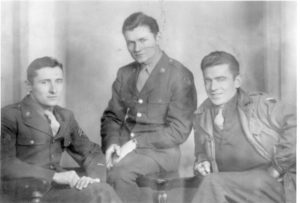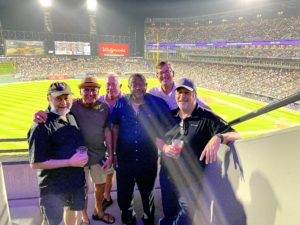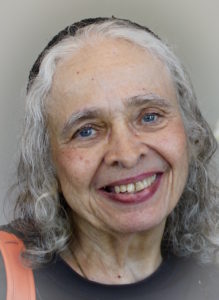Mondays with Mike: The ablest of baseball announcers
October 4, 2021 • 3 Comments • Posted in Mike Knezovich, Mondays with MikePeople with disabilities face a lot—there’s the disability itself. But there’s also the boxes others can put disabled people in. I’ve seen it first-hand. A lot of what Beth does is extremely difficult and sometimes scary. But if she lets on to that, others will assume that she has limitations that she doesn’t have. And she doesn’t want to be a hero or an inspiration—she wants to be Beth.

I hope you’ll read Peter Sagal’s piece in Chicago Magazine. But if you want a quick take on Jason Benetti, check out this animated video he did for the Cerebral Palsy Foundation.
I’ve even felt it. When we had Gus at home some would confer sainthood on me (I’ve always done a good job setting them straight, though). Others treated me like a martyr. One woman, who of all things worked as a social worker, once said to Beth: “Other men would have left.” What to say?
OK, now to the point: Many or most of you probably know Peter Sagal, the host of NPR’s “Wait Wait…Don’t Tell Me.” He’s terrific on that show. As I have just learned, he’s a helluva writer, too. He wrote a terrific piece in Chicago Magazine about one of Beth’s and my own favorite humans: White Sox TV play-by-play guy Jason Benetti.
It’s title: “The Storyteller of the White Sox”
Benetti has a whale of a story himself. He was born with cerebral palsy and spent his first months of life in neonatal intensive care. Raised in Homewood, a south suburb of Chicago, he grew up a White Sox fan.
Besides the White Sox games he does with color man Steve Stone, he does a zillion ESPN games—NCAA basketball, some MLB games, and I even stumbled onto a Lacrosse game he announced.
He’s brilliant and funny, and Sagal, who has become friends with Benetti, has written a terrific piece that draws out and explains the kinds of issues Benetti and other disable people face. And how they have to adjust their own attitudes.
A snippet:
Jason knows people stare at him. They always have. Jason knows that his legs are oddly curved, that he walks with a full-body hitch in his step, and that his eyes point in two different directions, making people who don’t know him think he’s congenitally stupid. Jason is far too kind to put it this way, and too well mannered, but his remarkable career and potentially unlimited success isn’t a triumph over adversity. It’s a message to everybody who ever called him a gimp, to parents who told their children not to stare, to the flight attendant who asked him three times if he could handle the weighty duties of sitting in an exit row, and, while we’re at it, to the rival Jason beat out for a college radio sports director job who said, on a public forum, “Well, at least he will be a great magazine story.” And that message is: Fuck you.
I doubt Benetti would ever mouth those words, but his achievements do get the point across. Later in the article, Benetti articulates something that I’ve always felt but never have been able to articulate myself: The tendency to make poster children out of people with disabilities. From the article:
I ask him about his role as a symbol of hope and triumph to the disabled and abled alike. He remains sensitive about it, especially the suspicion — fading but still lingering — that he got his chances to succeed only so he could make everybody else feel better. “You know those video clips where, say, the high school football team lets its disabled manager suit up and take the field and the other team lets him score a touchdown? I have an aversion to those. It’s like dropping food on a country in a famine. It’s nice and a good thing … but what’s going to happen after that?”
But he’s not bitter, and he understands why he is an inspiration to some. A quote from the piece:
I had hoped there was going to be a level of excellence that I would get to that people would just stop caring about how I look. That’s never going to happen. But … I got an email from a guy with a daughter who has CP, and he’s constantly fighting for her, to get her access, to get her opportunity. And he said that when she gets down, he tells her to just watch the White Sox on TV. ‘Forget all that,’ he tells her. ‘Look at Jason. You can do it!’
Indeed.






